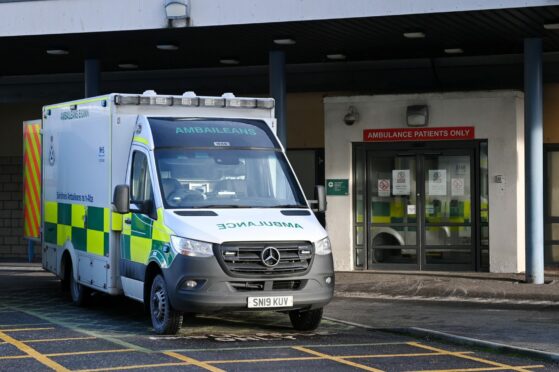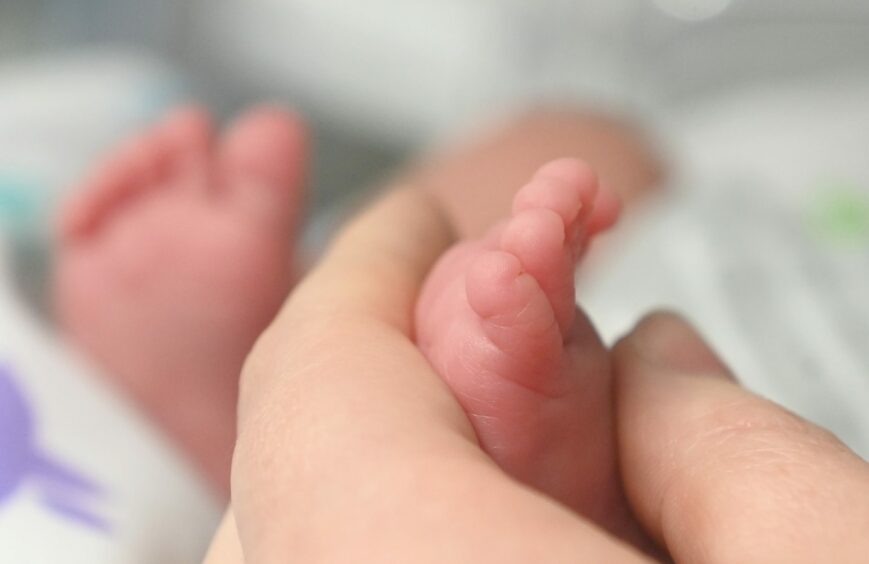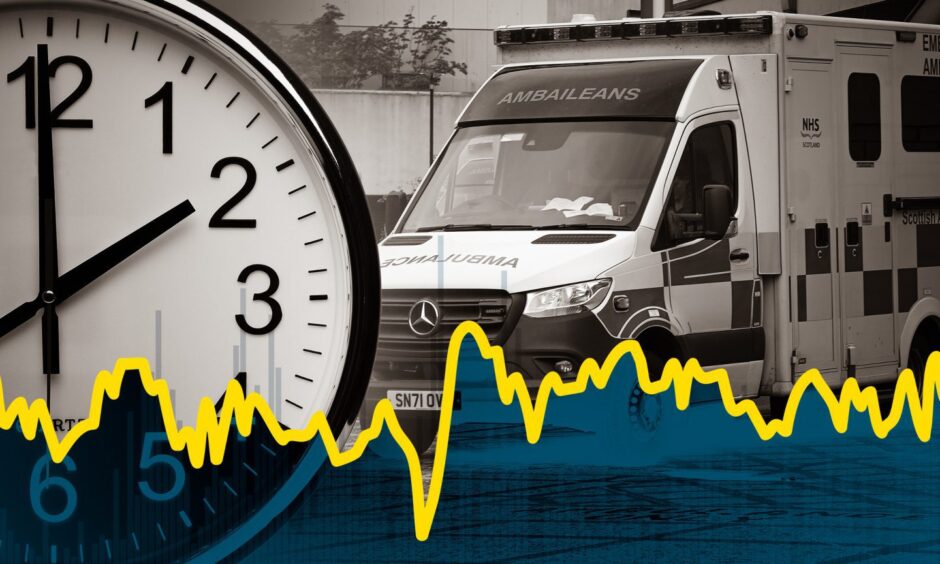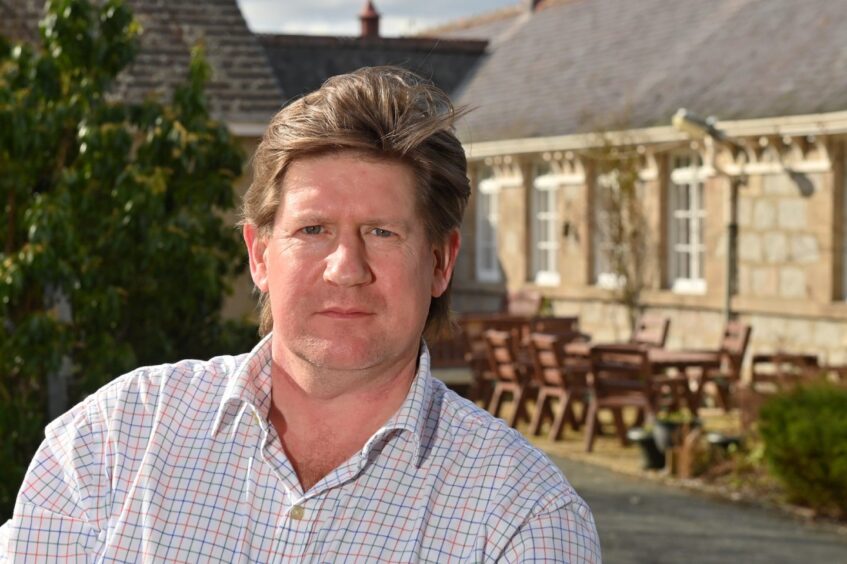The birth of a baby girl turned into a harrowing nightmare for an Aberdeenshire family as they fought to save the newborn’s life while facing a “frightening” long wait for an ambulance.
The ordeal began when the baby was born with breathing difficulties in the early morning at home in Torphins around three weeks ago.
A call for help was picked up in Yorkshire rather than Scotland – which is now being investigated by health bosses.
The woman’s partner and future mother-in-law were given CPR instructions until ambulances arrived at 5.43am, more than 30 minutes after the call was made.
The family, who wish to remain anonymous because of the trauma, says the call handler in Yorkshire had trouble finding their rural Aberdeenshire address and “did not seem to understand the urgency”.
The worker reportedly asked to speak to the patient despite her being in labour at the time.
When the expectant mum answered in a raised voice, they told her there is no reason to shout, the family said.
‘It feels like an eternity’
The baby’s grandmother said the events that morning felt like something “out of a movie” and spoke of how they were left with lingering fears over her health.
“It feels like an eternity when you’re there wondering if anyone is coming,” she said.
“The baby’s mum had just given birth and just instantly jumped in. None of us are medically trained.
“I did an emergency course through the fire brigade in Banchory many years ago but I’ve never done anything like CPR on a baby that’s just minutes old.
“All of us were petrified. Personally I try to not to think about it. At the time it was very distressing.
“I just think well she’s here now. It’s a different kettle of fish for her poor mum and dad. They have to live in that house where something could have gone tragically wrong.”
Torphins is covered by an ambulance station seven miles away in Banchory, but it is understood medics had to came from further away.
Markings on the vehicles suggest the first ambulance on the scene came from Ballater – which is around 28 minutes away.
Sent to hospital wrapped in blankets
It arrived with one paramedic and one fire and rescue officer as a shadow.
The second ambulance had Elgin on its side and a rapid response vehicle also in attendance appeared to be from Bridge of Don.
The family says the rapid response workers had to leave their vehicle at the home and travel in the ambulances to ensure emergency treatment could be given if necessary.
Mum and baby needed to be transferred to hospital in separate ambulances because the heating in one of the vehicles was not working – and the mother had to be wrapped in four blankets.
The baby’s grandmother said: “My complaint has nothing to do with the NHS, nothing to do with the paramedics or any of the staff that attended us. They were all amazing.
“It’s just the fact that they seem to think closing down rural locations is okay. It’s not acceptable at all when you live in rural areas, particularly in winter time.
“We’re more or less down to the bare bones. On this occasion, we were very lucky.
“The baby seems to be okay but she’s just coming up to three weeks old. You’ll never know if some kind of damage has been caused or not at this stage.”
Long-standing problem in north-east
Aberdeenshire West MSP Alexander Burnett raised the “frightening experience” with Scottish Ambulance Service chief executive Michael Dickson.
Mr Burnett said: “No one should be left to perform CPR on a new-born. It is a miracle the baby survived.”
Rural ambulance provision has come under the spotlight in recent years.
Pam Anderson, a 74-year-old care home manager, died on her way to hospital in Aberdeen after being forced to wait 40 minutes for a two-person crew from Tomintoul.
The first ambulance to arrive had only one crew member so was not allowed to take her.
Meanwhile, previous winters have seen crews warn the service is just a “small sprinkling of snow” away from grinding to a complete halt.
The Scottish Ambulance Service said it is deeply sorry for the distressing experience the Torphins family had.
It said it has well-established joint procedures in place with other UK nations to assist will call handling when centres are experiencing extremely high volumes of 999 calls.
The service added: “While we are limited in what we can say due to patient confidentiality, we can confirm that we are engaging with the family to hear their concerns and will be discussing the case with them directly.
“We recognise how distressing this experience must have been for the family, and we are deeply sorry this was the case. Please be reassured any learnings are identified through our engagement with the family will be implemented in full.”
The Scottish Government said it is also “very sorry” to hear of the incident and expects any lessons learned from the ongoing investigation to be used to make improvements.
Have you had problems with ambulance waiting times? Let us know in our form, we’d be really interested in hearing from you:




Conversation